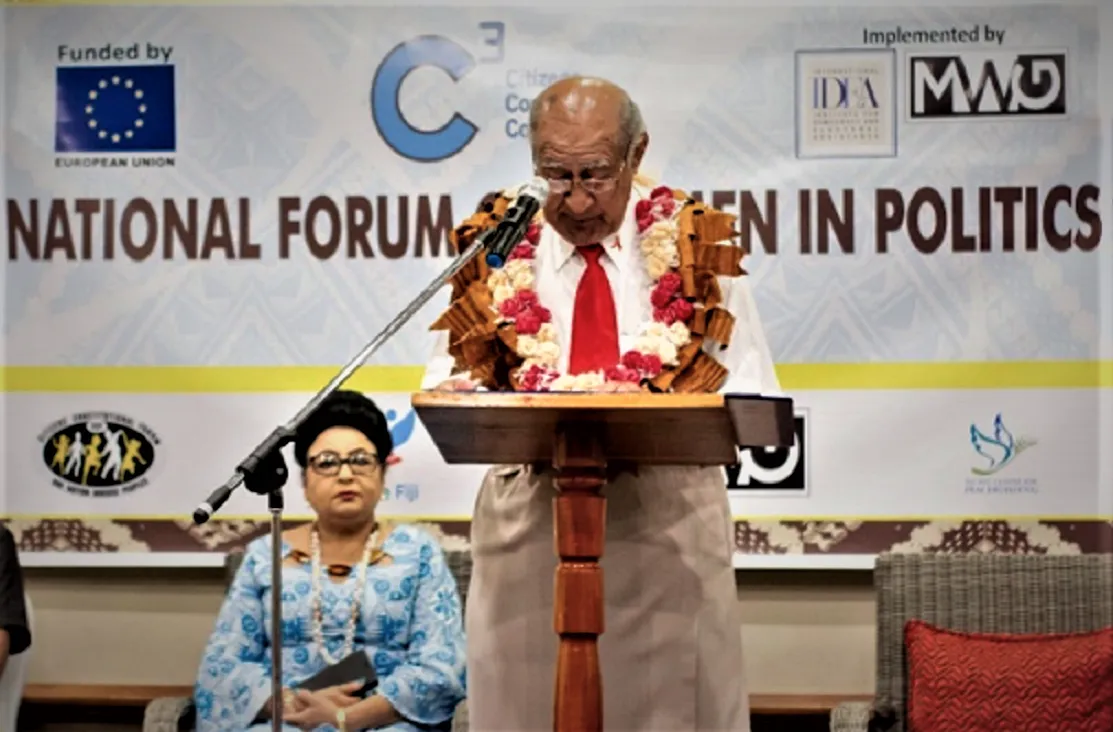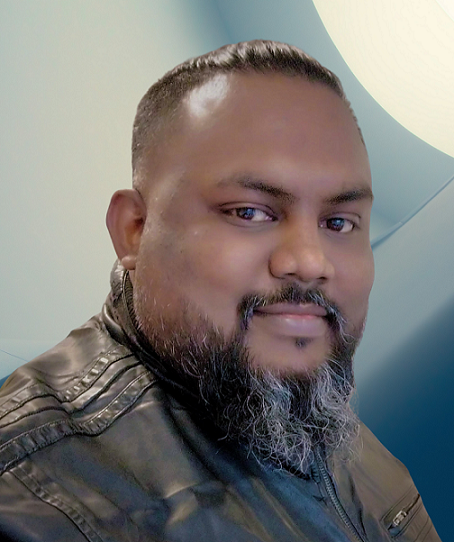Fiji National Forum on Women in Politics: How to make politics more inclusive?

The International Institute for Democracy and Electoral Assistance (International IDEA) together with the implementing Partners of the C3- Fiji Project concluded the third annual National Forum on Women in Politics on 15 December 2020.
The main objective of this forum was to identify challenges concerning women in politics and towards creating an enabling environment that enhances women's political participation and representation. This forum has been conducted annually since 2018 under the C3- Fiji Project, which is co-funded by the European Union and International IDEA. While speaking at the forum as the chief guest, the Speaker of the Parliament of the Republic of Fiji, Ratu Epeli Nailatikau, said that women’s empowerment and political participation are key to the human rights standards that we need to continuously strive towards. He further added that in the Pacific, the representation of women in parliament is amongst the lowest in the world. Currently, in the 15 Pacific parliaments (excluding Australia and New Zealand), women only occupy 8.9 per cent of the total seats which is 45 seats held by women, out of a total of 505 seats.
Are Temporary Special Measures needed?
The forum had participants from the Government and Opposition parties together with representatives from other registered parties in Fiji. In 2020, women make up 21.6 per cent of members of parliament, a number that has consistently risen, especially since the institution of the new electoral system in Fiji. However, this still falls short of the critical mass needed to ensure that women are properly represented and engaged in the highest law- and policy-making institutions. Discussions of temporary special measures (TSM) also transpired during the forum. “Rwanda is maybe the most successful example of this [TSM] Rwanda introduced a quota of 30 per cent and now has a parliament where 61 per cent of the members of parliament are women” said Dr Milla Vaha from University of the South Pacific. Another panellist, Alisi Rabukawaqa highlighted that it’s a high risk for young women to join politics because of job security. “Once you put yourself in this space, you put a scarlet letter on your body. It’s a risk for trying to get yourself into jobs, it’s a risk for you to get into spaces, you are constantly going to be targeted”. Many women in the room agreed that the political space needs to be more encouraging young women to join politics. “You always have to perform in a way that you have to earn your keep as young people”, as stated by Romitesh Kant, a social media expert who reaffirmed the notion of politics being a turf of ageism.
Role of the electoral system and 5 per cent threshold
There were also robust discussions around the electoral system and the 5 per cent threshold, which plays a part in the politics of wasted votes. In response, Roshika Deo, who ran as an independent candidate in 2014 General Elections said, “Votes are political expressions and beliefs. That’s what votes are and that’s how we should vote. The only wasted vote is the one that you don’t cast”. The threshold does however affect the number of parties that can gain seats in parliament, therefore having an effect on women’s representation. The Parliament Speaker also highlighted the need to involve men as champions and advocates to support women leaders. He further stated that men are also key partners in tackling gender-based discrimination and gender-based violence. Lack of women in politics is not solely for women to discuss and try to alleviate, but it is an issue for everyone.
Toward more inclusive political platforms
The Forum provided a platform for young aspiring women politicians together with young men and youths with special needs. Speaking through an interpreter, Krishneer Sen of Deaf Consultancy Pacific, thanked the forum for giving the opportunity to speak, “We are as equally important as the hearing community and for us as a minority group being limited to sign language. Our only barrier is that we cannot hear, but we do speak out as well. Our communication mode is through sign language and this is facilitated by an interpreter who voices over for us, but we have equal concerns, and we can be empowered, too”.
International IDEA alongside the C3-Fiji partners hope that the information that the participants will acquire during this forum will help bridge the barriers towards women’s political participation and representation. Hence, forums such as this are important for consolidating democracy in Fiji.




